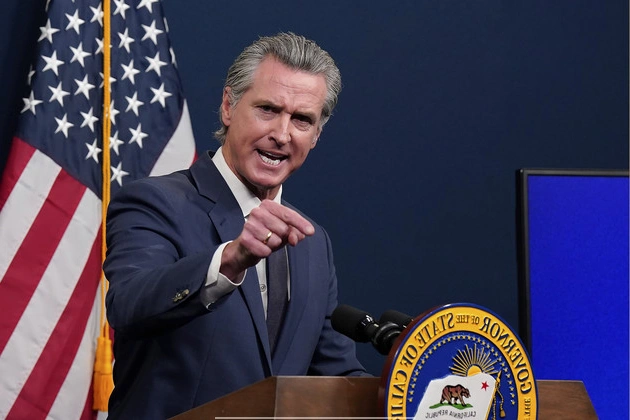
California Democrats find themselves embroiled in a heated internal conflict over Governor Gavin Newsom’s ambitious housing proposal, setting the stage for a contentious battle within the Democratic supermajority. Newsom’s plan to address the state’s affordability crisis and tackle a $12 billion budget deficit has sparked outrage and opposition from unexpected quarters.
The Showdown Unfolds
Hours of intense state budget hearings have laid bare the deepening divisions within California’s Democratic Legislature. Labor advocates, vehemently opposed to Newsom’s proposal on wage standards for construction workers, made their displeasure known by disrupting hearings and expressing strong dissent.
What was initially anticipated as a clash over Newsom’s proposed budget cuts to safety net programs has unexpectedly turned into a fierce standoff regarding housing development. This unexpected resistance from within his own party has put Newsom in a challenging position, especially considering his aspirations for a potential presidential bid in 2028.
Newsom’s attempt to leverage the entire state budget to push through a bill aimed at expediting housing development has faced significant pushback from construction unions and environmental groups. The proposal, which seeks to relax environmental regulations to accelerate housing construction, has drawn sharp criticism and accusations of undermining wage standards.
The Battle Lines Drawn
The rift within the Democratic Party has widened, with various factions expressing strong opinions on Newsom’s housing plan. The conflict has escalated to unprecedented levels, with comparisons to historical injustices like Jim Crow laws and contentious immigration policies.
Construction unions and labor advocates have mobilized against the proposed legislation, arguing that it could lead to a detrimental impact on wage standards and worker rights. The fierce opposition from these groups has added a new dimension to the debate, raising concerns about the implications of the bill.
Environmental organizations have also joined the fray, condemning the proposal as a backroom deal that could compromise community and environmental protections. The intense scrutiny and criticism from both labor and environmental fronts have put Newsom’s housing agenda under immense pressure.
The Fallout and Future Implications
The contentious nature of the housing debate has not only reverberated within California but has also attracted national attention. The involvement of prominent national unions and environmental groups underscores the significance of the issue and its potential repercussions.
As the battle over housing policy continues to unfold, the implications for Newsom’s political future and the Democratic Party remain uncertain. The clash between different interest groups and the intense opposition to the proposed legislation highlight the complexities of addressing California’s housing crisis.
While Newsom’s efforts to prioritize affordability and housing development are commendable, the resistance from within his party and external stakeholders underscores the challenges of enacting comprehensive reforms in a deeply divided political landscape.
As California grapples with escalating housing prices and affordability concerns, the outcome of this internal conflict could have far-reaching consequences for the state’s future trajectory and the broader national discourse on housing policy.











